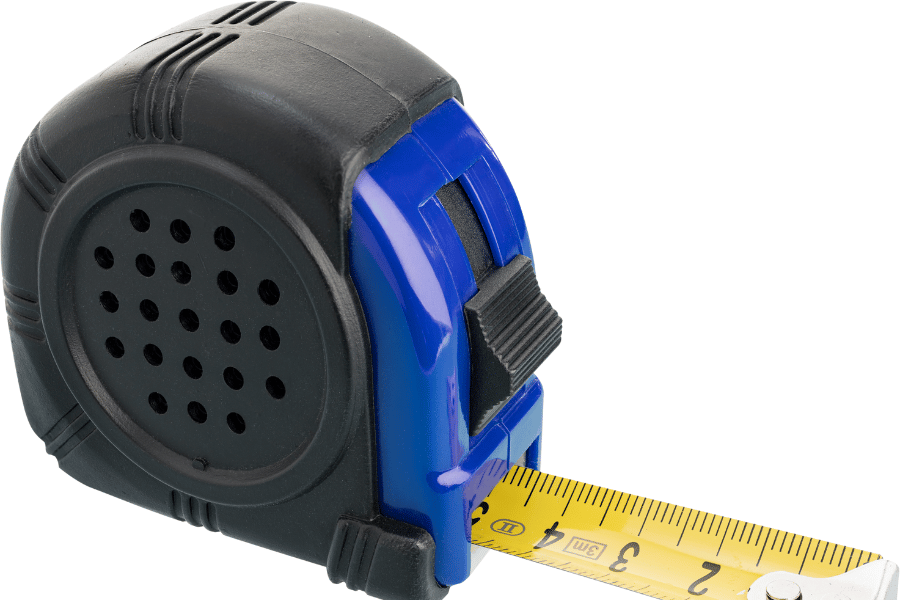When it comes to maintaining a comfortable home environment, selecting the right size HVAC (Heating, Ventilation, and Air Conditioning) unit is a crucial decision.
An appropriately sized HVAC system will not only ensure your home remains at a pleasant temperature but will also operate efficiently, potentially saving you money on energy bills and prolonging the life of your unit. Here’s how you can determine the best HVAC unit size for your home.

Understand the Basics of Sizing
HVAC sizing is typically measured in British Thermal Units (BTUs) or tons, where one ton is equivalent to 12,000 BTUs. This measurement doesn’t reflect the weight of the unit, but rather, its ability to cool.
The general rule is that an HVAC system needs about 20 BTU for each square foot of living space. However, several factors can influence this calculation.
Consider the Climate
Your geographical location plays a significant role in determining the size of your HVAC system. Homes in hotter climates, such as Texas, will require a more powerful system than those in cooler regions.
For instance, a home in Georgetown or Cedar Park, Texas, might need more cooling capacity compared to a similar-sized home in a milder climate.
Assess Your Home’s Insulation
Good insulation significantly reduces the workload on your HVAC system. If your home is well-insulated, it will retain cool air in the summer and warm air in the winter more effectively, requiring less energy to maintain the desired temperature.
Consider the quality of your insulation, including windows and doors, which can be critical points of heat exchange.
Count the Windows and Doorways
Windows and doors can also impact the size of the HVAC system you need. Large windows may bring in more heat during the summer, especially if they face south. Similarly, the number and quality of doors and windows affect how heat is retained or lost in your home.
Calculate the Square Footage
Calculating the square footage of your home is the starting point for determining the correct HVAC size. Measure the length and width of each room and multiply these numbers together to get the area.
Add up the areas of all rooms to find the total square footage of your home. However, remember that high ceilings and multi-level homes might require adjustments in your calculations.
Check for Existing Ductwork
Existing ductwork in your home can also influence the type of HVAC system you choose. Poorly maintained or inefficient ducts can leak air and reduce system efficiency, thereby requiring a larger system to maintain comfortable temperatures.
Ensure your ductwork is inspected and, if necessary, repaired or upgraded before installing a new HVAC unit.
Consult with Professionals
While you can start the estimation process on your own, consulting with HVAC professionals is advisable to ensure accurate calculations. HVAC technicians can provide insights specific to your home’s layout, insulation, local climate, and other factors that might affect your choice.
Final Tips
- Avoid Oversizing: An oversized HVAC unit cycles on and off more frequently, which can lead to inefficient operation and increased wear on the system.
- Consider Energy Efficiency: Opt for units with higher SEER (Seasonal Energy Efficiency Ratio) ratings. Although they might be more expensive upfront, they can provide significant savings in the long run.
- Regular Maintenance: Once installed, ensure your HVAC unit is regularly maintained. This includes checking filters, ducts, and the unit itself to ensure optimal performance.
Choosing the right size HVAC unit for your home is more than just calculating square footage; it involves a comprehensive understanding of your home’s specific needs based on various physical and environmental factors.
By taking a measured approach and consulting with experts, you can ensure that your home remains comfortable throughout the year while optimizing energy use and maximizing the lifespan of your unit.
If you are experiencing a problem with your air conditioning or heating call us at 512-336-1431 to schedule an appointment. We’ll be glad to come out and take a look at the issue.
1431-183 A/C & Heating proudly serves Round Rock, Georgetown, Cedar Park, Pflugerville, Leander, Liberty Hill, and North Austin.
